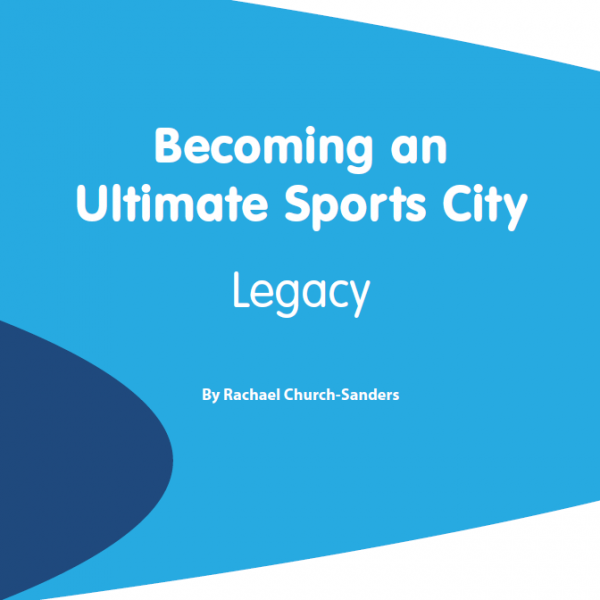Becoming an Ultimate Sports City – Event Strategy | Case studies – Auckland
 Auckland was ranked second in the 2014 Ultimate Sports Cities rankings in the category of Event Strategy. Sports event bidding and hosting in Auckland is led by Auckland Tourism Events and Economic Development (ATEED). Here we look at the most important guidelines and practices that ATEED works by.
Auckland was ranked second in the 2014 Ultimate Sports Cities rankings in the category of Event Strategy. Sports event bidding and hosting in Auckland is led by Auckland Tourism Events and Economic Development (ATEED). Here we look at the most important guidelines and practices that ATEED works by.
Becoming an Ultimate Sports City – Event Strategy | Case studies – Copenhagen
 Copenhagen was ranked third in the 2014 Ultimate Sports Cities rankings in the category of Event Strategy. The city has a dedicated event organisation called Wonderful Copenhagen Events, and a strategy for attracting events based on factors including: city branding, economic impact, national pride, volunteering, involvement, activation and environmental impact.
Copenhagen was ranked third in the 2014 Ultimate Sports Cities rankings in the category of Event Strategy. The city has a dedicated event organisation called Wonderful Copenhagen Events, and a strategy for attracting events based on factors including: city branding, economic impact, national pride, volunteering, involvement, activation and environmental impact.
Becoming an Ultimate Sports City – Event Strategy | Case studies – Calgary
 Calgary was ranked fourth in the 2014 Ultimate Sports Cities rankings in the category of Event Strategy. The Calgary Sport Tourism Authority (CSTA) is responsible for bidding for sports events for the city and is reflective of the city’s pervasive sporting culture. The CSTA is a collaboration of leaders in sport, business, government and tourism who are mandated to provide advice, due diligence and strategic direction in evaluating and attracting sports events.
Calgary was ranked fourth in the 2014 Ultimate Sports Cities rankings in the category of Event Strategy. The Calgary Sport Tourism Authority (CSTA) is responsible for bidding for sports events for the city and is reflective of the city’s pervasive sporting culture. The CSTA is a collaboration of leaders in sport, business, government and tourism who are mandated to provide advice, due diligence and strategic direction in evaluating and attracting sports events.
Becoming an Ultimate Sports City – Event Strategy | Case studies – London
 London was ranked fifth in the 2014 Ultimate Sports Cities rankings in the category of Event Strategy. The Greater London Authority (GLA) leads the strategy for sports events in London and oversees the bid process for any major sports event. An organisation called London & Partners assists in winning and promoting major events for London to generate economic benefit.
London was ranked fifth in the 2014 Ultimate Sports Cities rankings in the category of Event Strategy. The Greater London Authority (GLA) leads the strategy for sports events in London and oversees the bid process for any major sports event. An organisation called London & Partners assists in winning and promoting major events for London to generate economic benefit.
PDF download | Becoming an Ultimate Sports City – Legacy
 In the second in a series of five mini reports on sports event hosting, in association with the Ultimate Sports Cities rankings, we take a look at legacy. There is a discussion of the latest thinking around legacy, and case studies looking at the top five cities in the category of legacy in this year's rankings - Auckland, London, Manchester, Cape Town and Calgary.
In the second in a series of five mini reports on sports event hosting, in association with the Ultimate Sports Cities rankings, we take a look at legacy. There is a discussion of the latest thinking around legacy, and case studies looking at the top five cities in the category of legacy in this year's rankings - Auckland, London, Manchester, Cape Town and Calgary.
Becoming an Ultimate Sports City – Legacy | Introduction – Latest thinking and expert discussion on legacy
 Countries and cities have various reasons for bidding to host an event beyond financial gain. Legacies can include improving the image of the city or country, putting it on the map in terms of attracting future events, creating a positive economic impact from increased tourism (the subject of a later report in this series), building venues and facilities that will enhance the health of a nation and help develop new sports stars, and improved infrastructure in areas from transport to telecoms and beyond.
Countries and cities have various reasons for bidding to host an event beyond financial gain. Legacies can include improving the image of the city or country, putting it on the map in terms of attracting future events, creating a positive economic impact from increased tourism (the subject of a later report in this series), building venues and facilities that will enhance the health of a nation and help develop new sports stars, and improved infrastructure in areas from transport to telecoms and beyond.
Becoming an Ultimate Sports City – Legacy | Case studies – Auckland
 Auckland was ranked first in the 2014 Ultimate Sports Cities rankings in the category of Legacy. Each major event supported by Auckland Tourism Events and Economic Development (ATEED), the body responsible for such events in the city, must have a plan that sets out the legacy that the event organiser will work towards.
Auckland was ranked first in the 2014 Ultimate Sports Cities rankings in the category of Legacy. Each major event supported by Auckland Tourism Events and Economic Development (ATEED), the body responsible for such events in the city, must have a plan that sets out the legacy that the event organiser will work towards.
Becoming an Ultimate Sports City – Legacy | Case studies – London
 London was ranked second in the 2014 Ultimate Sports Cities rankings in the category of Legacy. The London 2012 Summer Olympic and Paralympic Games were a huge global marketing showcase for London. The city is delivering the legacy of 2012 by maintaining the momentum and enthusiasm for major sporting events, and using its infrastructure, logistics and expertise to host more events.
London was ranked second in the 2014 Ultimate Sports Cities rankings in the category of Legacy. The London 2012 Summer Olympic and Paralympic Games were a huge global marketing showcase for London. The city is delivering the legacy of 2012 by maintaining the momentum and enthusiasm for major sporting events, and using its infrastructure, logistics and expertise to host more events.
Becoming an Ultimate Sports City – Legacy | Case studies – Manchester
 Manchester was ranked third in the 2014 Ultimate Sports Cities rankings in the category of Legacy. The city's commitment to sport has delivered impressive results not least through creating a lasting legacy for the city region. Manchester recognises that legacy is not captured via investment in major events, but by ensuring that strategies for sport development, community delivery, health and education are intrinsic to the bidding for major events.
Manchester was ranked third in the 2014 Ultimate Sports Cities rankings in the category of Legacy. The city's commitment to sport has delivered impressive results not least through creating a lasting legacy for the city region. Manchester recognises that legacy is not captured via investment in major events, but by ensuring that strategies for sport development, community delivery, health and education are intrinsic to the bidding for major events.
Becoming an Ultimate Sports City – Legacy | Case studies – Cape Town
 Cape Town was ranked fourth in the 2014 Ultimate Sports Cities rankings in the category of Legacy. The city approaches legacy in a way that contributes to two main pillars of the city’s 2012-2017 Integrated Development Plan: "Opportunity City" and "Inclusive City". Both pillars incorporate several criteria for events.
Cape Town was ranked fourth in the 2014 Ultimate Sports Cities rankings in the category of Legacy. The city approaches legacy in a way that contributes to two main pillars of the city’s 2012-2017 Integrated Development Plan: "Opportunity City" and "Inclusive City". Both pillars incorporate several criteria for events.